The first edition of this two-part essay was written with a two-fold purpose in mind – namely, (1) the introduction of the female Confederate spy, Miss Belle Boyd, to readers who have never heard of her or her published memoirs before; and (2), to begin the process of exposing Wikipedia and its articles as often unreliable sources from whence to glean accurate information on a given subject or subject matter. This second, and final, edition of this essay will be dedicated to completing the exposition I began in the first.
In the first edition, as you’ll recall, we compared and contrasted notes from the Wikipedia article in question, with direct quotes from Belle Boyd’s memoirs, specifically with regard to the causes and chain of events that led up to Miss Boyd’s shooting and killing of a Union soldier. In this edition, we shall utilize the same method in demonstrating that the Wikipedia article on Miss Boyd’s Confederate exploits is chock full of additional error and erroneous information, apparently gleaned from second and third-hand sources, and/or overactive imaginations.
To begin, it should be pointed out that the Wikipedia article in question claims at the outset that Miss Boyd’s published memoirs amount to a “highly fictionalized account” of her exploits as a Confederate spy. Noteworthy about the “highly fictionalized” claim is that the statement is made matter of factly, as though it is some sort of self-evident truth that needs no evidence to back it up. Meanwhile, and as was shown in the first edition of this essay, the scribbler(s) who wrote the Wikipedia article isn’t/aren’t especially given over to good scholarship or historical accuracy.
Whether Boyd’s book is or isn’t “highly fictionalized” is not for me to say. By the same token, it isn’t for the Wiki scribbler(s) to say either, unless he/she/they can show evidence supporting the assertion. And until they can, and in fact do, show such evidence, we are authorized to take the “highly fictionalized” claim against the veracity of Boyd’s memoirs with a proverbial grain of salt; to consider it merely a speculation or conjecture likely attributable to the author’s own biases without warrant. But there is even more error to expose in this sloppily done Wikipedia article, to wit:
Excerpted from the Wikipedia article:
One evening in mid-May 1862, Union Army General James Shields and his staff gathered in the parlor of the local hotel. Boyd hid in the closet in the room, eavesdropping through a knothole she enlarged in the door.
Well at least our scribbler got the date right. There are, nevertheless, several problems with this account, both in its narrow, as well as its broader, context. I will, however, limit myself to correcting the simplest and most obvious, in the narrower context, for the time being – that involving the closet and the “knothole” Boyd supposedly “enlarged” in the closet door.
By direct contrast to the Wikipedia accounting of these events, Belle Boyd describes the scene rather thusly:
The night before the departure of General Shields, who was about, as he informed us, to “whip” [Stonewall] Jackson, a counsel of war was held in what had formerly been my aunt’s drawing-room. Immediately above this was a bedchamber, containing a closet, through the floor of which I observed a hole had been bored, whether with a view to espionage or not I have never been able to ascertain.
I trust I need not re-state the several inconsistencies between the two accountings – Boyd’s, and the Wiki scribbler’s – of this particular set of details. I can only speculate as to the reason the our scribbler got all of the most important details of the story wrong on this one, but the fact is in any case that (s)he got it entirely wrong, my speculations on the matter notwithstanding.
What we’re beginning to see here, dear reader, is a pattern; and the pattern that is emerging is making it seem as though the “highly fictionalized” accusation leveled against Boyd’s memoirs at the outset of the Wikipedia article, would be more accurately applied to the Wikipedia article itself, than to Miss Boyd’s accounts. I mean, how can any reader who is the least bit attentive get from Boyd’s account of these events just cited that the bore hole through a floorboard in a second-story closet above the room in question, was in fact a knot hole (enlarged by Boyd, no less) in the closet door in the very room where the Yankee War Counsel was being held? The answer is of course that it is impossible to make these sorts of mistakes from having actually read Miss Boyd’s accounting, as opposed to having read some second or third-hand accounting conjured up in the overactive imagination of the person in question. If I didn’t know better, I might be tempted to think the wiki-scribbler in question conjured up the spirit and overactive imagination of Harriet Beecher Stowe in order to get this information.
But to further solidify the point (as though this is necessary at this point), let us read Boyd’s fuller accounting of these interesting events:
The night before the departure of General Shields, who was about, as he informed us, to “whip” Jackson, a council of war was held in what had formerly been my aunt’s drawing-room. Immediately above this was a bedchamber, containing a closet, through the floor of which I observed a hole had been bored, whether with a view to espionage or not I have never been able to ascertain. It occurred to me, however, that I might turn the discovery to account; and, as soon as the council of war had assembled, I stole softly up-stairs, and, lying down on the floor of the closet, applied my ear to the hole, and found, to my great joy, I could distinctly hear the conversation that was passing below.
Boyd, pg. 105
In case you didn’t pick up on it, the key words and phrases in that fuller context are, “up-stairs,” “on the floor,” and “below.”
At this point, I could certainly rest my case, but there is yet more error to expose in this sloppily done Wikipedia entry. Consider, e.g., this assertion from the Wiki article:
[Boyd] profited from this enforced familiarity, charming at least one of the officers whom she named in her memoir as Captain Daniel Keily,[7] She wrote in her memoir that she was indebted to Keily “for some very remarkable effusions, some withered flowers, and a great deal of important information.”
First of all, Boyd never names a “Captain Daniel Keily” in her memoirs. She refers to a “Captain K.” Had the Wiki scribbler actually read that portion of her memoirs in which the aforementioned Captain K. is named, (s)he would have known that and would not have therefore attributed the naming of a Captain Daniel Keily (whoever he is, or was) to Miss Boyd. To prove what I’m saying here, let facts be submitted to a candid readership.
Miss Boyd writes (pg. 104-105 of her memoirs):
General Shields introduced me to the officers of his staff, two of whom were young Irishmen; and to one of these, Captain K., I am indebted for some very remarkable effusions, some withered flowers, and last, not least, for a great deal of very important information, which was carefully transmitted to my countrymen. I must avow the flowers and the poetry were comparatively valueless in my eyes; but let Captain K. be consoled: these were days of war, not of love, and there are still other ladies in the world besides the “rebel spy.”
Now, you’ll have to take me at my word on this, but, the original Belle Boyd article at Wikipedia claimed, in support of the “highly fictionalized” accusation mentioned above, that there was never a Captain Daniel Keily attached to General Shields’s command. That claim has now been expunged from the article, while the “highly fictionalized” claim remains. But whether or not there was in fact a Captain Daniel Keily attached to the command, or of whether he is the selfsame “Captain K.” of Boyd’s memoirs, is of little interest to me in any case; the fact remains that Boyd never identifies such a person by name in her memoirs. And, indeed, the citation attached to the claim in the article is not to Boyd’s memoirs in any event, but to a second-hand source. That is poor scholarship, y’all.
It is, however, possible that the second-hand source in question did the research necessary to correctly identify this Captain K. fellow as in fact being one Captain Daniel Keily, but I couldn’t say for sure one way or the other, having not read the second-hand source. I know it can be done, however, because I’ve read many of these memoirs and compared notes between them for purposes of nailing down who a given person was in reality vs. the fictitious name given him/her for purposes of protecting real identities. For example, comparing notes on Virginia Lomax’s memoirs with those of Mrs. Greenhow from their (overlapping) time spent at Carroll Prison, it is relatively easy to determine who “Mrs. Johnson” in Lomax’s narrative was in reality. Mrs. Greenhow was not a fan of “Mrs. Johnson,” as was Virginia Lomax, and, indeed, she (Mrs. Greenhow) believed her (Mrs. Johnson) to likely be a double spy working for the Yankees. Therefore Mrs. Greenhow never makes an effort to protect “Mrs. Johnson’s” actual identity in her memoirs, whereas Virginia Lomax went to great pains to do so in hers.
In any case, and to close this essay out, I hope I’ve managed to convince you, dear reader, that Wikipedia is not necessarily a reliable source of information, and perhaps more often than we’d like to believe, it is in fact not a reliable source at all. Someone wise once said that “original sources are a lightbulb.” In this particular case, as well as others I’m liable to write about in the future, that statement is very true. The bottom line is, and if this happens to be a temptation of yours, my strong advice is to not fall into the trap of becoming “wiki-smart” on any given subject or subject matter, because, in so doing, you are actually, and really, becoming wiki-dumb. Read original sources, and don’t be Wiki-Dumb!
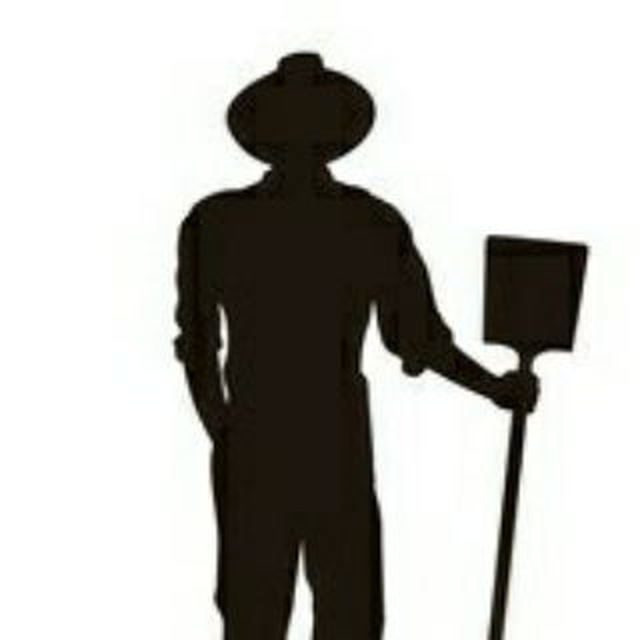

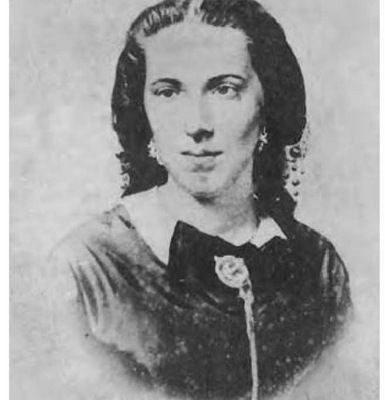
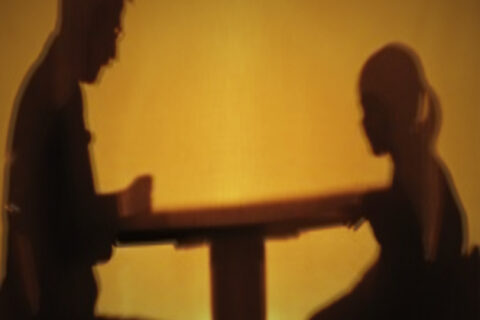
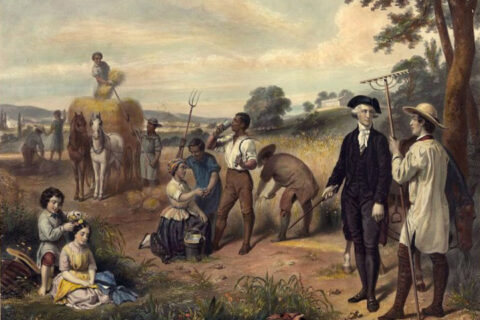
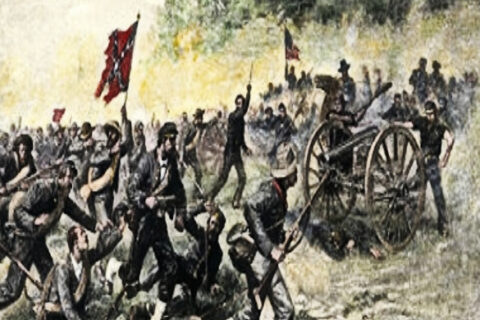

“that the statement is made matter of factly, as though it is some sort of self-evident truth that needs no evidence to back it up.”
The Twitter Neo-Yankee “hystorians,” make matter of fact statements, based on assumptions and on their personal opinions, all of the time. They often will claim that the assumptions made by modern individuals in Illinois or Minnesota, about the South, and the Southern People, are definitely true and accurate, compared with what Southerners say about the South and about themselves. Which are simply lies, made up after the fact, to cover up some supposed, (by the Yankees.) “guilt,” or “shame.”
The lengths and extent that these people go to, in order to defend and justify the North and it’s actions, is as astounding, as it is exasperating and aggravating. It certainly demonstrates the falseness of the Northern States’ cause. Real truth and righteousness are mostly self evident, and require far less defense, than does the Northern narrative. Quite frequently, genuinely righteous causes are seldom, if ever, mentioned as such.
Wikipedia might (stated with reservation) be OK for pop culture (“When did Rod Stewart sing ‘Year of the Cat’). Useless beyond that type of triviality.
Agreed. Shortly after reading the article, one of my nephews sent me this clip from “The Office.”:
https://youtu.be/kFBDn5PiL00
Which of course nicely sums up the value of Wikipedia and its scribblers’ historical knowledge and accuracy. I’ve never watched The Office, so that was the first I’d seen of the clip.
Thanks for the comment.